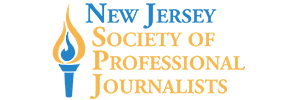 NJ-SPJ officers Ron Miskoff and Miriam Ascarelli were at a state Senate Budget and Appropriations Committee hearing in Trenton yesterday supporting proposed legislation to update and modernize NJ’s Open Public Meetings Act (OMPA) and Open Public Records Act (OPRA). Also supporting the bill were representatives from the NJ Press Association, the ACLU of NJ and the NJ Foundation for Open Government.
NJ-SPJ officers Ron Miskoff and Miriam Ascarelli were at a state Senate Budget and Appropriations Committee hearing in Trenton yesterday supporting proposed legislation to update and modernize NJ’s Open Public Meetings Act (OMPA) and Open Public Records Act (OPRA). Also supporting the bill were representatives from the NJ Press Association, the ACLU of NJ and the NJ Foundation for Open Government.
The next step will be a committee vote, at a date yet to be announced.
Background
State Senator Loretta Weinberg has been working in earnest with the advocates on all sides of the issue on this for about a year. At the heart of all these discussions is an acknowledgement that OPRA and OMPA need to be updated for the digital age. So the OPRA bill, for example, makes it possible to submit OPRA requests via email, and it requires governmental bodies to post their notices, agendas and meeting minutes on their own websites, and, if they don’t have a site of their own, to post them on a statewide website. The idea here is that this take advantage of technology in such a way that clerks and other records custodians won’t need to spend as much time processing routine requests.
What’s in the bills:
- Fee shifting in the Open Public Meetings Act: We see this is a huge positive because it would allow citizens and journalists who win a court case involving a violation of the Open Public Meetings Act (OMPA) to be reimbursed for their attorney’s fees. Without fee shifting, each party is responsible for paying their respective attorneys’ fees, meaning someone without the money to pay for an attorney would be less likely to sue a governmental agency, even when those rights are plainly violated. Such a mechanism already exists for Open Public Records Act violations, which is why you see many more attorneys taking on OPRA cases than OMPA cases.
- Redactions of public records: This provision would require records custodians, when redacting public documents, to explain the reasoning behind their actions. To illustrate the importance of this provision, Jennifer Borg, NJPA representative and in-house counsel for northjersey.com, showed a copy of the 3 ½ pages of blank pages that a clerk provided in response to an OPRA request that a reporter from The Record made about Hurricane Sandy. When Jennifer sued, suddenly the clerk provided the information, un-redacted. This provision would force records custodians to explain why the documents were redacted in the first place.
- Expanding OPRA and OMPA to cover quasi-governmental agencies: Quasi-governmental agency is being defined as “any association, commission, agency, authority, organization, public-private entity, or any other entity in which one or more public agencies exercise substantial control.’’ Currently, quasi-governmental agencies are not covered under either of the laws, hence another positive.
- Commercial requesters: commercial requesters will have to certify their use of government data for commercial purposes and will be subject to a surcharge set by each town. We didn’t hear much about this yesterday, perhaps because no one from the clerks’ association (which has been pushing for this) or a commercial entity (the opposition) testified, but clashes on this issue seem inevitable.


Be the first to comment on "NJ-SPJ supports bills amending state transparency laws"